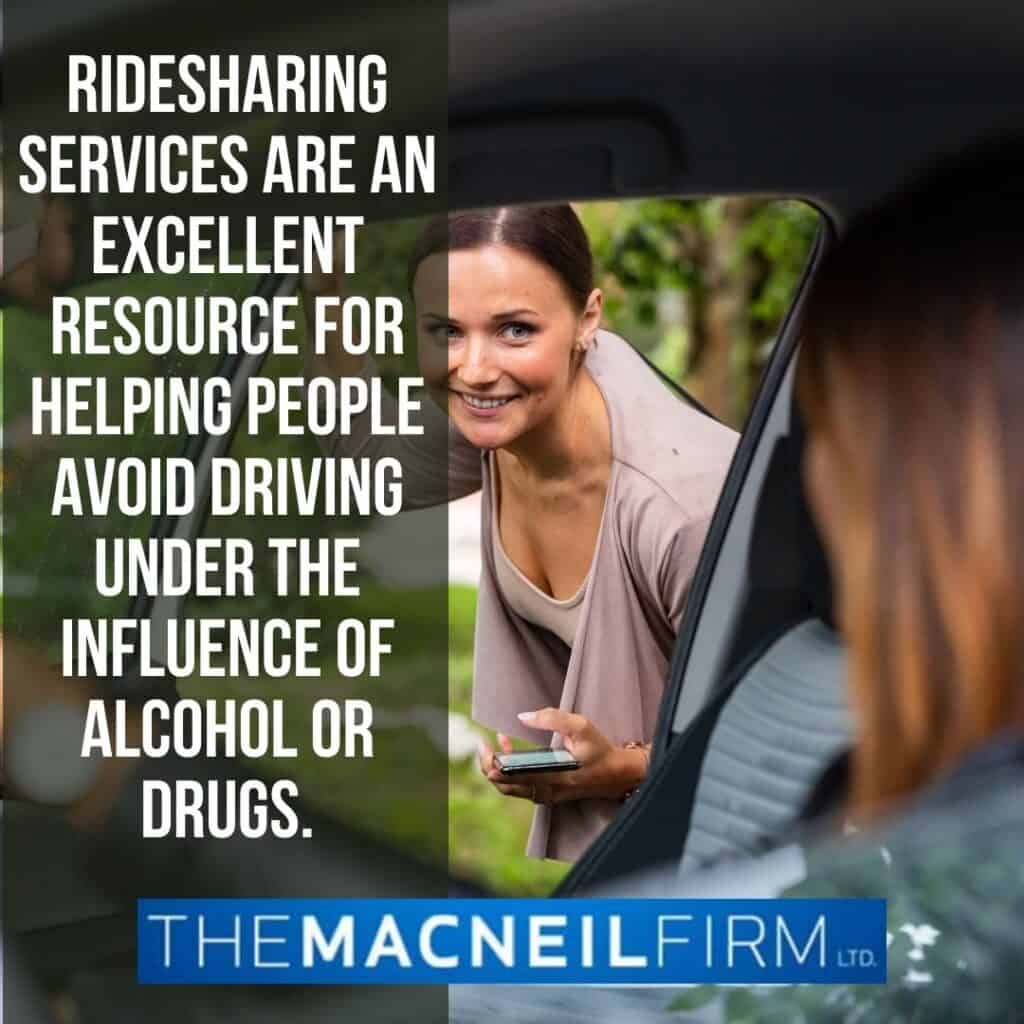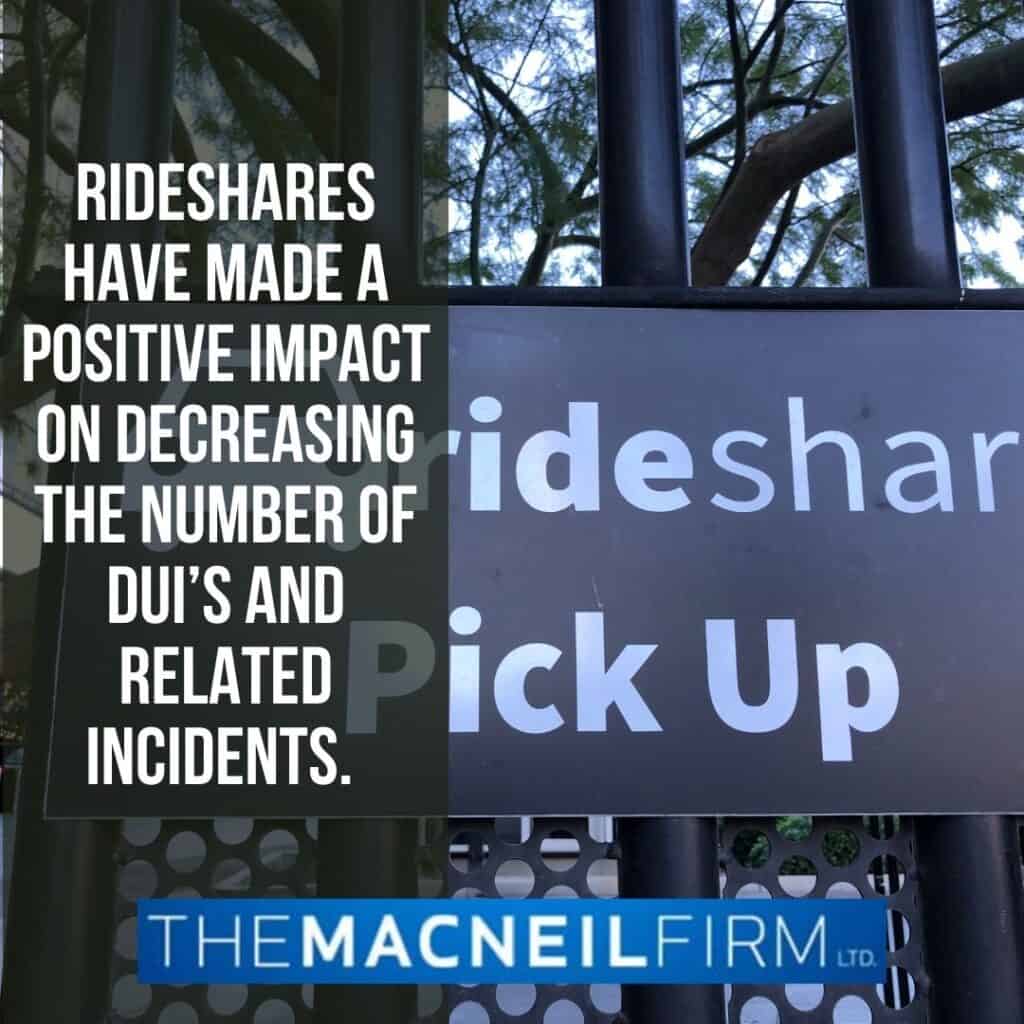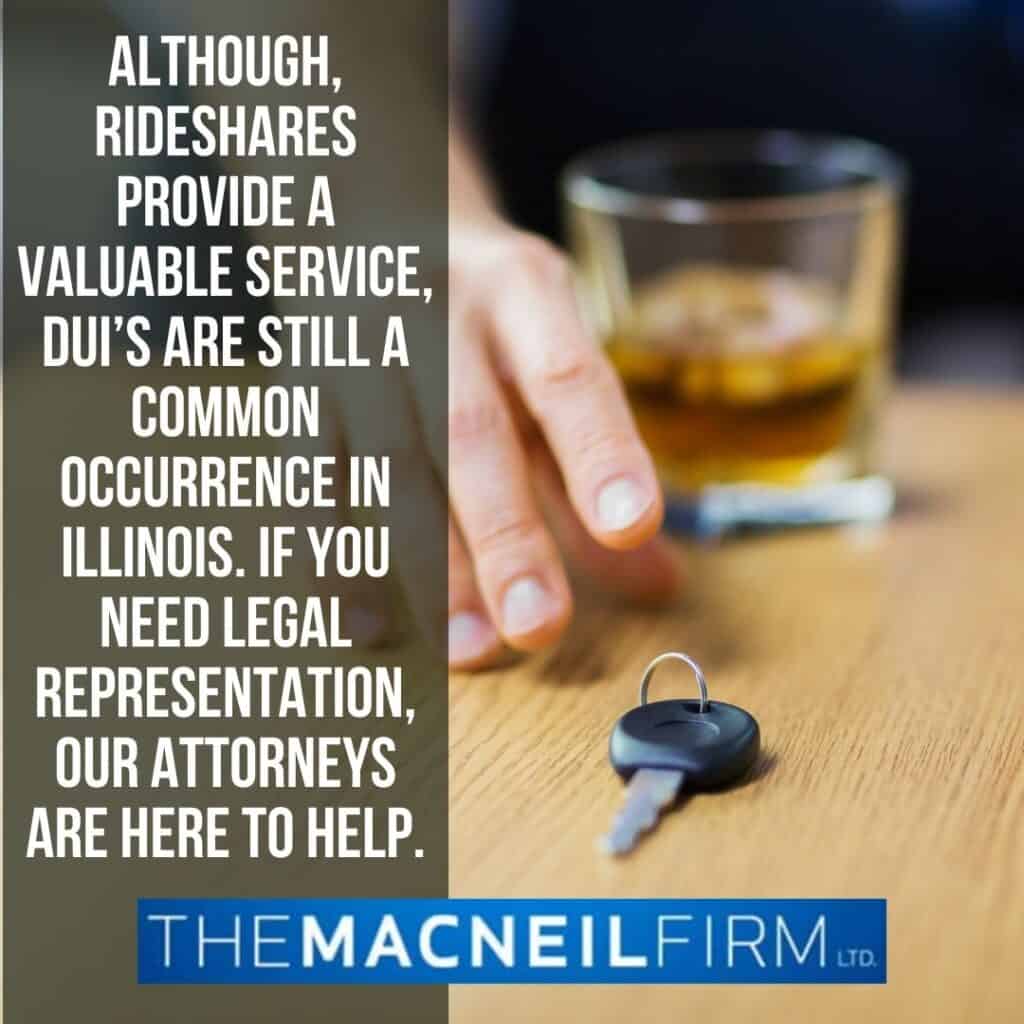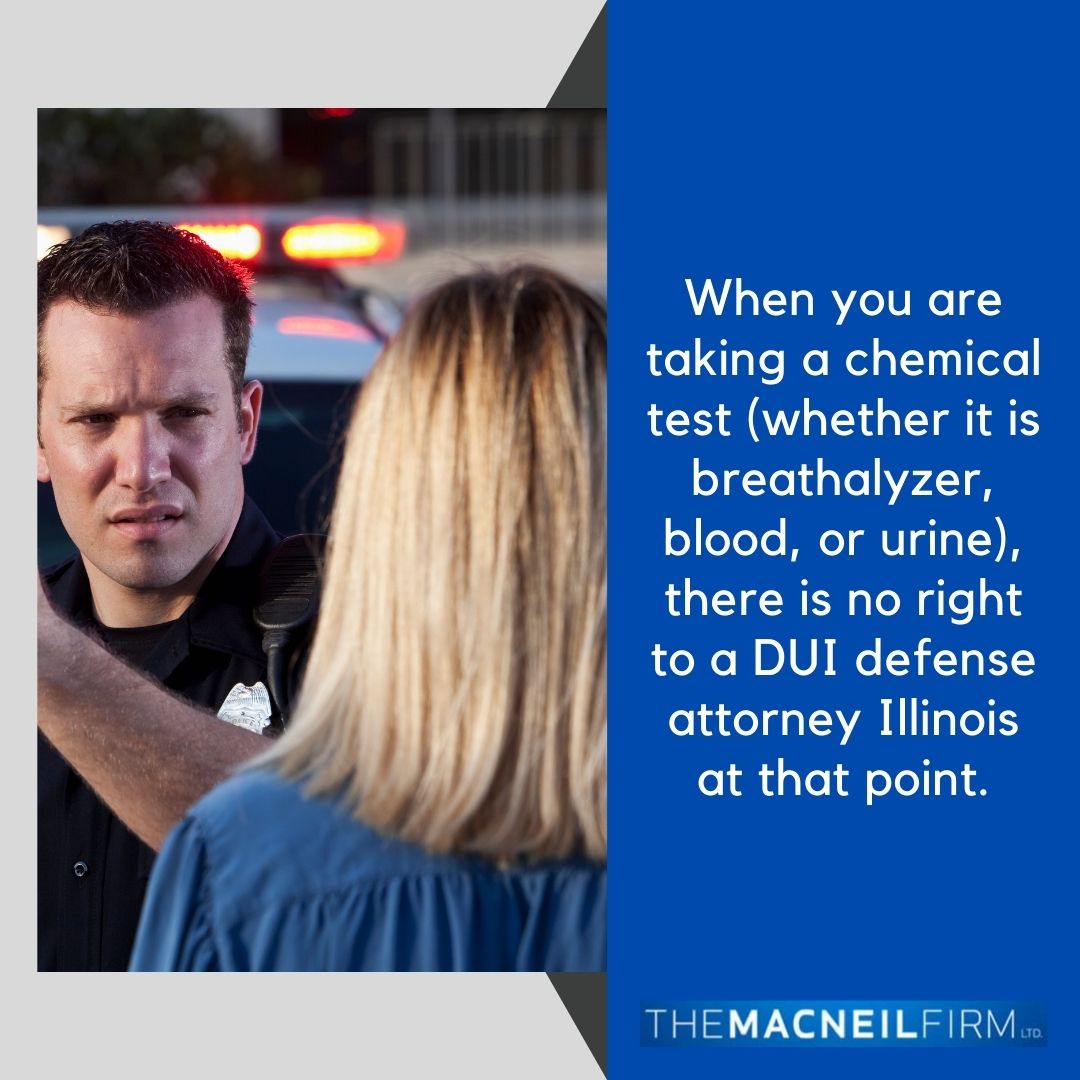Since it was founded in 2009, Uber has grown into one of the world’s largest companies. Almost 100 million people use the app each month globally. Rideshares have been used by people to avoid DUI’s. If you are in need of an attorney, our DUI lawyer Crest Hill Illinois can help you. Call today at (708) 218-0947 for a consultation.
While there are many good defense lawyers who can handle all kinds of criminal cases including drunk driving and drug cases, the MacNeil firm is distinguished by our personal service. We make every effort to exceed our client’s expectations during this stressful time after an arrest.
While ridesharing has become woven into the fabric of everyday life for many Illinois residents, concerns still remain about safety and insurance coverage. Illinois is one of the few states that are in a period of immense change, with new laws being passed at an alarming rate. One law that has been particularly contentious is the rideshare law. With this new law in place, Illinoisans may be wondering how they can still get home safely from a night out on the town.
The Rideshare Law is a set of regulations set forth to regulate and limit transportation network companies (TNCs) like Uber and Lyft. The law was passed in late 2018 and went into effect January 1st 2019. However, several parts of it have been suspended pending further review by lawmakers due to their controversial nature.
How a rideshare works
Rideshare Law is a new law that has been passed in many states. The goal of this legislation is to make it easier for people who have been drinking to get home safely by providing them with an alternative to driving drunk.
The process works like this: A person looking for a ride calls or texts their driver using the rideshare company’s app on their smartphone, which then sends out a signal through GPS technology so the driver knows where they are located and can pick them up within minutes. Once at the destination, passengers pay their fare through their phone before they exit the vehicle. The entire process is pretty simple from start to finish.
Decrease in DUI’s
Ridesharing services are an excellent resource for helping people avoid driving under the influence of alcohol or drugs. By providing non-alcoholic options and designated drivers, these services provide users with alternatives to driving themselves home after drinking too much at bars or parties. They also allow users who have already been drinking alcohol or taking drugs to call for help instead of attempting their own journey back home on their own, which could lead them into dangerous situations.
Rideshares are a convenient, cost-effective way to get around. They’re also safer than driving yourself and can help prevent DUIs if you have been drinking. A University of Texas health study has found that traffic-related trauma cases and DUI convictions are significantly down thanks to rideshares, especially with people 30 and younger. In addition, the research shows that after Uber came to Houston, motor vehicle collision traumas decreased by 23.8% on Friday and Saturday nights for all ages, and 38.9% for individuals under 30 years old. Also, DUI arrests decreased across the board, with the greatest reduction on Fridays, Saturdays, and Sundays.
Rideshares have made a positive impact on decreasing the number of DUI’s and related incidents. However, if you are in need of legal support, our DUI lawyer Crest Hill Illinois can help you. We will take time to learn about you and your case, as well as any mitigating circumstances leading up to the arrest.
If you’ve been charged, a DUI lawyer Crest Hill Illinois can help you
The rideshare law has changed how people behave and what their expectations are when getting home safe after a night out drinking. This new law makes it more difficult for people to drive while intoxicated, but it doesn’t stop them from doing so. As a result, DUI remains an issue in Illinois and throughout the country. If you need a DUI lawyer Crest Hill Illinois, The MacNeil Firm is here to help you. Contact us today for a free consultation.




